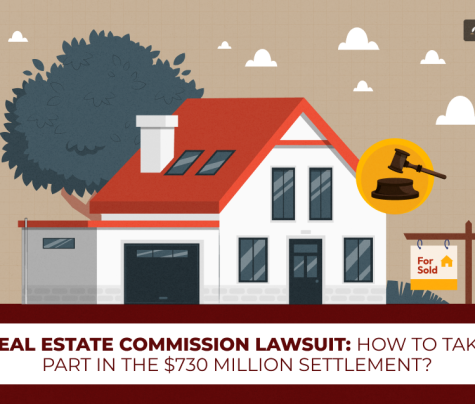
Commercial property disputes often involve legal issues involving various parties, such as landlords, renters, property owners, developers, and investors.
Moreover, these disputes occur over several different reasons like the following:
- Leases.
- Contracts.
- Property lines.
- Unpaid rent.
- Environmental concerns.
Therefore, you will need a competent attorney, an expert in both real estate and litigation. For instance, the Parris Whittaker law firm can help you find an attorney to settle your property litigation case. You can also contact their Bahamas location to find geo-based solutions.
Real estate issues such as boundary disputes, title flaws, and breach of contract can be quite problematic for property owners, investors, and developers.
These disagreements can have a major negative effect on the value of a real estate investment. They can result in protracted court cases and incur high costs and delays.
Thus, it is essential to settle these conflicts quickly to prevent financial and psychological stress.
Understanding The Causes

Given below are some of the most important reasons that result in litigation cases for commercial properties—
Breach Of Contract
Contract conflicts, in which each party has rights and duties under the agreement, are a common source of commercial litigation.
In these cases, one side often sues if the other fails to perform its bargain. This can happen due to miscommunication in the contract or a lack of resources.
Moreover, a court interprets the contract in a breach-of-contract case or determines whether one or both parties have broken the conditions.
Legal contracts are crucial for real estate projects and transactions. They detail the work, cost, schedule, and expectations. Therefore, these contracts must specify how to bring a breach-of-contract suit.
Disputes Between Co-owners
Because several corporations sometimes hold commercial real estate positions, disagreements about upkeep, modifications, and rental rates are common.
Real estate dividends are difficult to divide, which makes settlement tough.
Often, litigation is the only option. The business may take certain measures to refute claims made by shareholders that their rights are being infringed.
Shareholders may bring a derivative lawsuit against a firm for breach of fiduciary obligations by its executives or directors or against a majority shareholder for oppression of shareholders.
Minority shareholders may also sue a majority shareholder. Partners or business owners may occasionally be alleged to have infringed upon certain rights within a partnership or operating agreement. Early legal aid can ease the situation.
Intellectual Property Infringement
Intellectual property litigation includes disagreements about license agreements, trade secret misappropriation, and trademark or copyright infringement.
Trademarks, such as words, symbols, devices, or brand names, differentiate items between makers and sellers.
When proprietary techniques or secret recipes are misused and disclosed by competing companies or unhappy workers, leak them, legal action can result.
A frequent topic of intellectual property litigation is licensing agreements, in which one party consents to paying another party to utilize a piece of intellectual property; an example would be a corporation licensing its in-house software to another company.
These disagreements have the potential to get complicated and have serious legal repercussions.
Disputes On Service Charges
Due to their fluctuating and unpredictable nature, property maintenance expenses are a major source of contention between tenants and landlords. Tenants pay service charges, which cover them.
Concerns include service quality, cost appropriateness, and charge calculation. Landlords pursue recovery to uphold standards, and tenants encounter disagreements when they fail to pay fees on schedule.
However, collecting arrears may take a lot of work, which makes managing the process difficult for landlords.
Dilapidation Issues
Landlords can file a claim for deterioration at the lease’s conclusion if a renter doesn’t fix any harm to their property. Mid-tenancy disputes may also arise as a result of repair covenant violations.
Disputes about the required repairs or the price of fixing deterioration are common. To resolve these conflicts, it is necessary to analyze the lease conditions and present documentation of the property’s condition.
The Dilapidations Protocol describes the procedure for submitting claims for damages at the end of a lease, which aims to facilitate conflict resolution and prevent litigation between landlords and renters.
Resolving dilapidation claims requires precise property condition evaluations and well-defined lease conditions.
What Are The Challenges You Might Face?

Legal action is often necessary in property conflicts and may be mediation, litigation, or discussions.
Federal, state, local, and county laws and regulations may all be involved in real estate transactions. Comprehending these laws is essential in filing a commercial real estate dispute lawsuit.
Certain conflicts may need special approvals from cities and counties, including arguments with local zoning boards or land use authorities.
These organizations frequently follow certain protocols and concentrate on local laws and regulations.
Having a knowledgeable lawyer represent you in these legal matters can maximize your chances of a successful resolution.
If you are worried about a commercial real estate issue, it is crucial to consult with an attorney. They can advise you on your legal choices and, if necessary, assist you in taking your case to court.
Finding An Efficient Commercial Litigation Attorney
A complicated area of law known as “commercial litigation” deals with various conflicts, such as shareholder and contract violations.
Contracts are essential in business because they establish responsibility and protect all parties. However, not all contracts are respected, and breaking one may result in legal problems.
When selecting the best lawyer for your company, consider a lawyer’s experience with restrictive covenants, foreclosure lawsuits, and partnership issues. Examine their case outcomes; a solid history of winning cases suggests dependability.
Commercial litigation lawyers represent individuals and corporations in court regarding various legal problems, including intellectual property, defamation, and breach of contract.
Select a lawyer with a solid reputation to safeguard your company and interests.
How The Court Deals With Litigation Cases?
Disagreement parties should adhere to pre-action procedures before starting court proceedings to encourage early dialogue and negotiation to settle disagreements outside of court.
The claimant issues a claim form detailing the specifics of the dispute and serves it to the defendant. Moreover, having competent legal counsel guarantees the completion of all necessary paperwork.
Therefore, every business must establish its legal position up to a court date by reviewing contracts, calculating damages, and working out a settlement through discussions.
The court will schedule a hearing with witnesses, evidence, and solicitors handling property disputes.
All correspondence, including official meetings and in-person discussions, should be kept on file since the court will review the submitted evidence and legal arguments.
Additional Reading:
- 7 Steps To Negotiating A Better Settlement Agreement
- What Does A Real Estate Attorney Do? Do You Need One?
- Experienced Commercial Litigators: Resolving Business Disputes Efficiently and Effectively











0 Reply
No comments yet.